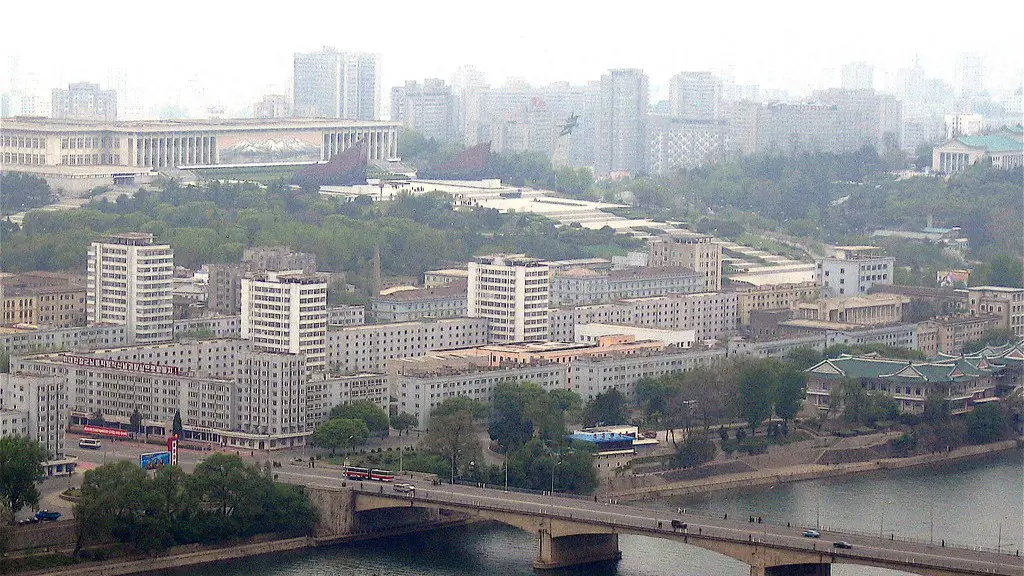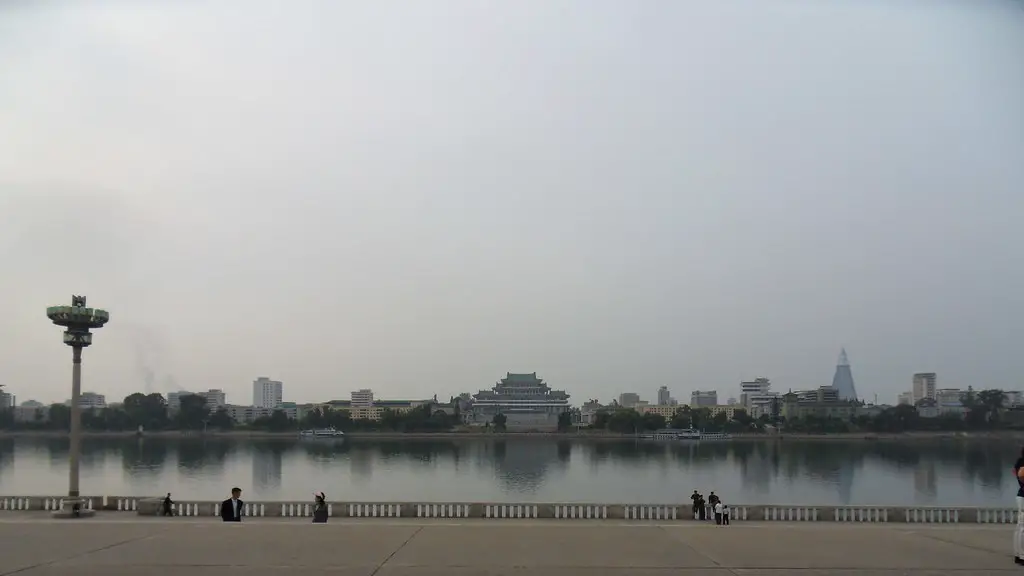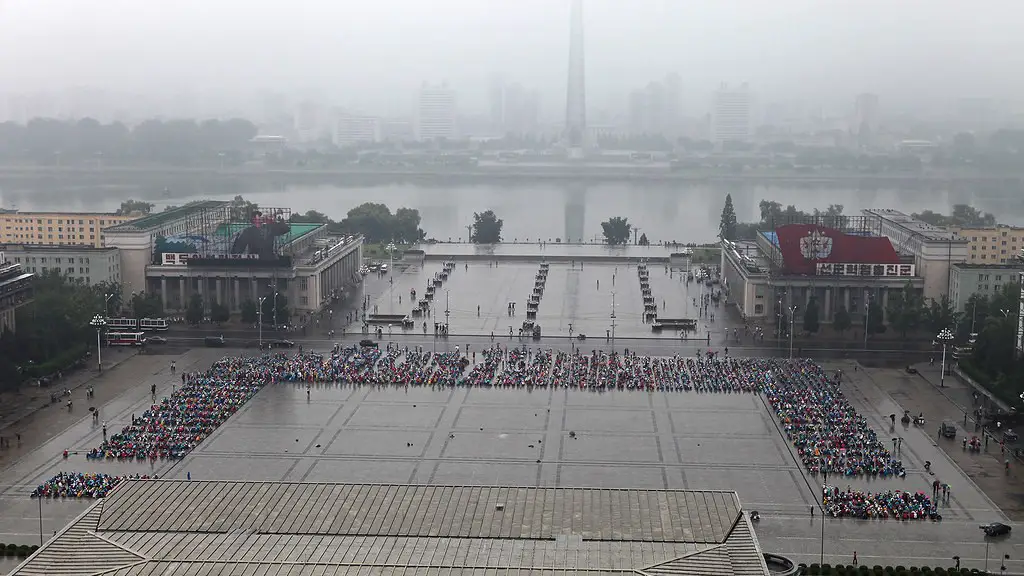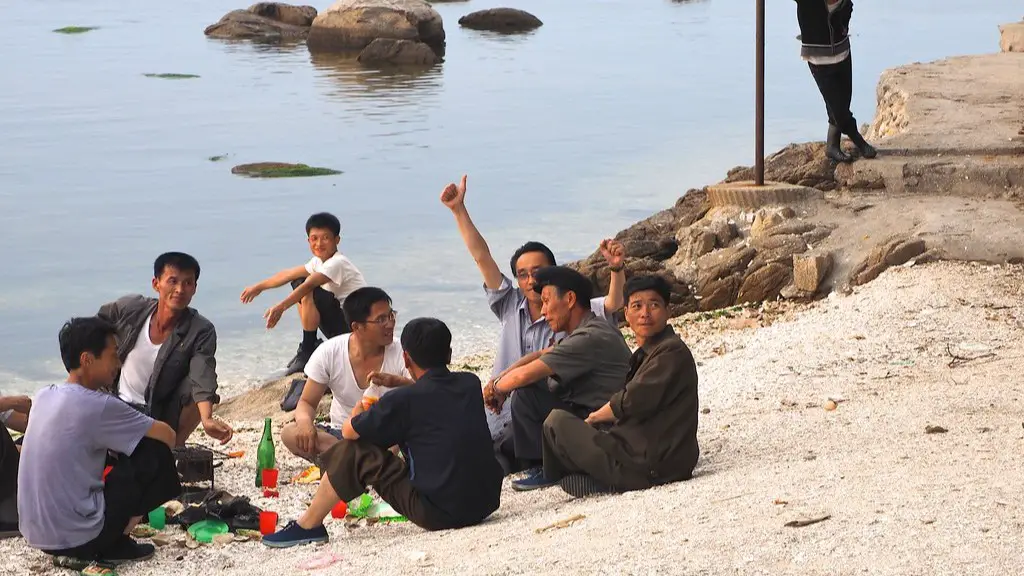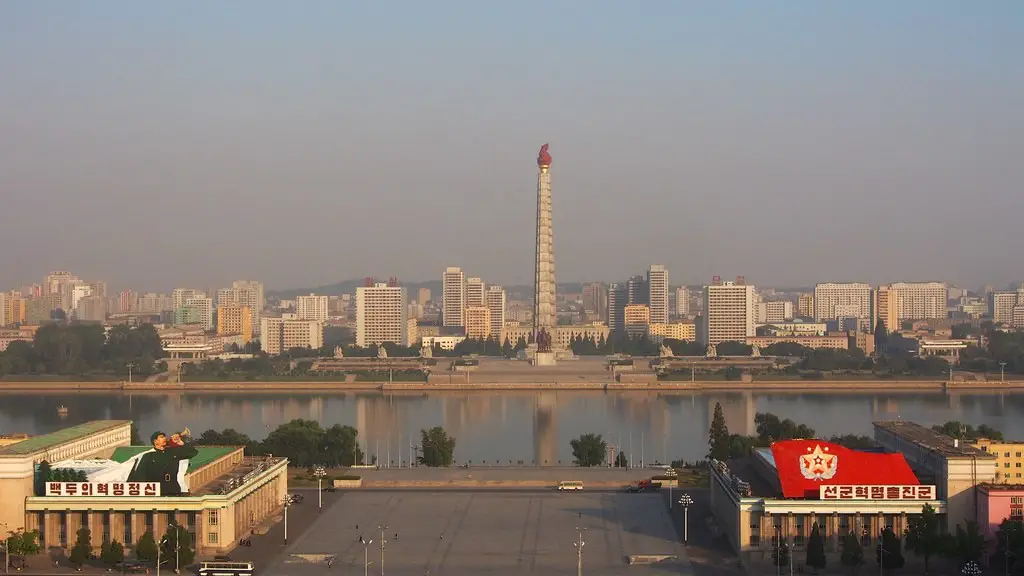Nuclear weapons are a major source of fear and anxiety in the world today. North Korea has become an increasingly worrying figure in international politics, and in particular its nuclear weapons capabilities. Estimates suggest that North Korea currently has between 10-20 nuclear warheads and the potential to develop more in the future. While North Korea’s nuclear activity has been a source of global concern for some time now, recent developments indicate that this may be a growing problem.
Following a series of ballistic missile tests by North Korea in the first half of 2017, the United Nations Security Council imposed a number of new sanctions in August. This was intended to put additional pressure on the North Korean government in an effort to curtail their nuclear weapons program. Despite this, the nuclear capabilities of North Korea remain of great concern.
In order to gain a better understanding of the current nuclear capabilities of North Korea, it is important to take into account the views of experts in this field. Some experts believe that North Korea has the capacity to produce up to 20 nuclear warheads. However, it is also likely that North Korea is capable of producing significantly more weapons with greater destructive capabilities. It is estimated that North Korea has enough fissile material for up to 60 warheads, leading to fears that the country could be developing a far more powerful nuclear arsenal than previously thought.
The threat posed by North Korea’s nuclear arsenal is likely to continue to grow in the coming years, but it is difficult to gauge the extent of their capabilities. Intelligence analysts remain unsure as to how many warheads are currently operational, and the level of technological sophistication of North Korea’s nuclear program is difficult to assess. While the European Union has imposed additional sanctions to try and curb the development of North Korea’s nuclear weapons, it remains to be seen if these will have the desired impact.
Although North Korea’s nuclear capabilities have been widely reported in the media, it is also important to take into account the wider implications of the country’s nuclear ambitions. The presence of nuclear weapons in North Korea has had a profound effect on the region, both politically and economically. North Korea’s nuclear arsenal has destabilised the region, making it more difficult for neighbouring countries to engage in diplomatic and economic dialogue. There is also the potential for North Korea to sell nuclear weapons to other countries, or develop more powerful weapons which could be used for more destructive purposes.
In addition to the political implications, North Korea’s nuclear arsenal also has economic consequences. As North Korea continues to develop its nuclear capabilities, it is likely that other countries in the region will take measures to counter this. This could include increased military spending, leading to a potential arms race. Furthermore, the prospect of a nuclear conflict in the region could lead to a decrease in investments, making it more difficult for countries to access vital capital and resources.
As the situation in North Korea continues to develop, the international community must take diplomatic measures to deter the country from further development of nuclear weapons. It is essential that all countries in the region work together in order to prevent a dangerous arms race and ensure that North Korea does not increase its nuclear capabilities any further.
The Potential Impact of North Korea’s Nuclear Weapons
The increasing number of nuclear weapons held by North Korea could have far-reaching implications in the region and beyond. Apart from the potential for war, the development of North Korea’s nuclear arsenal has the potential to fuel an arms race between other countries in the region. This could lead to increased military activity, as countries seek to build up their own military capabilities in order to counter North Korea’s weapons. This could lead to an escalation of tensions, and an increased risk of conflict. Furthermore, the presence of nuclear weapons could also lead to an increase in international sanctions and instability, making it more difficult for countries to engage in economic dialogue.
In addition, the development of North Korean nuclear weapons may also have implications for other countries’ nuclear arsenals. If North Korea develops a more powerful nuclear arsenal, it could lead to a long-term shift in the balance of power in the region, with countries such as the United States and China losing influence. Also, the presence of North Korea’s nuclear weapons could lead to proliferation, as other countries in the region may be incentivized to develop nuclear weapons of their own. This could in turn lead to a further destabilization of the region and increase the risk of nuclear conflict.
The international community must take urgent measures to deal with the proliferation of nuclear weapons in North Korea, and to avoid an escalation of tensions. It is essential that all countries in the region take steps to counter any further development of North Korea’s nuclear capabilities and ensure that the country does not pass its weapons onto other states or groups.
The Role Of Sanctions In Deterring North Korea
The international community has responded to the proliferation of nuclear weapons in North Korea by imposing economic and diplomatic sanctions. These sanctions have been intended to put pressure on the North Korean government and deter them from further development of the country’s nuclear arsenal. While the United Nations has imposed a number of sanctions on North Korea in recent years, these have yet to have the desired effect.
The international community must continue to increase the pressure on North Korea and tighten the sanctions if further progress is to be made. The current sanctions have had limited success in convincing North Korea to abandon its nuclear ambitions, and it is unlikely that further sanctions alone will do much to change the country’s behavior. Furthermore, the sanctions have had a significant impact on North Korea’s economy, leading to an increased risk of poverty and starvation for many of the country’s citizens.
In addition, it is also important to consider the wider implications of the sanctions imposed on North Korea. While the sanctions are intended to put pressure on the North Korean government, they may also be doing more harm than good in some cases. For example, it has been suggested that the sanctions have hindered the development of the country’s economy, leading to an increased risk of economic collapse. In addition, the sanctions may be having an adverse effect on the region, leading to further tension and instability.
The international community must strive to find a more effective way of dealing with North Korea’s nuclear ambitions. While sanctions remain an important tool in curbing the country’s nuclear program, it is essential that other diplomatic methods are also taken into account. Dialogue and negotiation should be the focus of any efforts to prevent North Korea from further development of its nuclear arsenal.
The Prospect for Growing North Korea’s Nuclear Arsenal
Despite the international community’s efforts to deter North Korea from further development of its nuclear capabilities, there is still a real risk that the country will continue to expand its arsenal. North Korea’s nuclear ambitions are unlikely to be curtailed in the short-term, and while the current sanctions have had an impact, they have yet to persuade the country to abandon its nuclear ambitions. It is likely that North Korea will continue to develop its nuclear capabilities in the coming years, and there is a real danger that the country could further expand its arsenal.
The international community must be prepared for the possibility of an increase in North Korea’s nuclear capabilities. It is essential that the international community takes urgent action to prevent North Korea from expanding its nuclear arsenal and to reduce the risk of conflict in the region. The United Nations should continue to put pressure on North Korea to curb its nuclear ambitions, and other countries in the region must also demonstrate their commitment to reducing the risk of nuclear conflict.
While it is difficult to predict the extent of North Korea’s nuclear capabilities in the future, it is clear that further action must be taken to curb the country’s ambitions. It is essential that the international community works together to prevent North Korea from further development of its nuclear arsenal and to reduce the risk of nuclear conflict in the region.
The Impact on North Korean Society of Nuclear Weaponry
The most significant consequence of North Korea’s nuclear ambitions is the impact it has had on the people of North Korea. While the country’s nuclear weapons program has been a source of political and economic tension in the region, it has also had a significant effect on the North Korean people. North Korea’s nuclear program has put a strain on the country’s economy, as resources are diverted from other key areas in order to fund the program. This has led to a decrease in living standards, with many North Koreans living in poverty. Furthermore, the fear of nuclear conflict has had a psychological effect on the population, creating a sense of uncertainty and worry.
It is essential that the international community takes measures to reduce the impact of North Korea’s nuclear program on its citizens. The United Nations should put additional pressure on the North Korean government to reduce spending on its nuclear program, and to invest resources in health, education, and other vital areas. Furthermore, the international community should also consider providing humanitarian aid to North Korea in order to reduce the suffering of its people.
It is clear that North Korea’s nuclear program has had a significant impact on the country, and it is essential that steps are taken to reduce the risk of nuclear conflict and to improve the lives of the North Korean people. The international community must continue to take action to counter North Korea’s nuclear capabilities, and to ensure that the country does not pass its weapons onto other states or groups.
International Response to North Korea’s Nuclear Program
The international community has responded to the proliferation of nuclear weapons in North Korea by imposing economic, diplomatic, and military sanctions. These have been intended to put pressure on the North Korean government, and deter them from further development of the nuclear program.
The sanctions imposed on North Korea by the United Nations have had a significant impact on the country’s economy, but have yet to persuade the North Korean government to abandon their nuclear ambitions. It is likely that further pressure must be applied in order for North Korea to reduce its nuclear activity.
The United States and other countries in the region must also be prepared to take a more proactive role in the negotiations with North Korea. The United States should consider taking diplomatic steps in order to engage with North Korea, and other countries in the region should also work together to pressure the country to reduce its nuclear program.
The international community should also continue to seek diplomatic solutions to the situation in North Korea, in order to reduce the risk of military conflict in the region. It is essential that all countries in the region work together in order to prevent a dangerous arms race and ensure that North Korea does not increase its nuclear capabilities any further.
